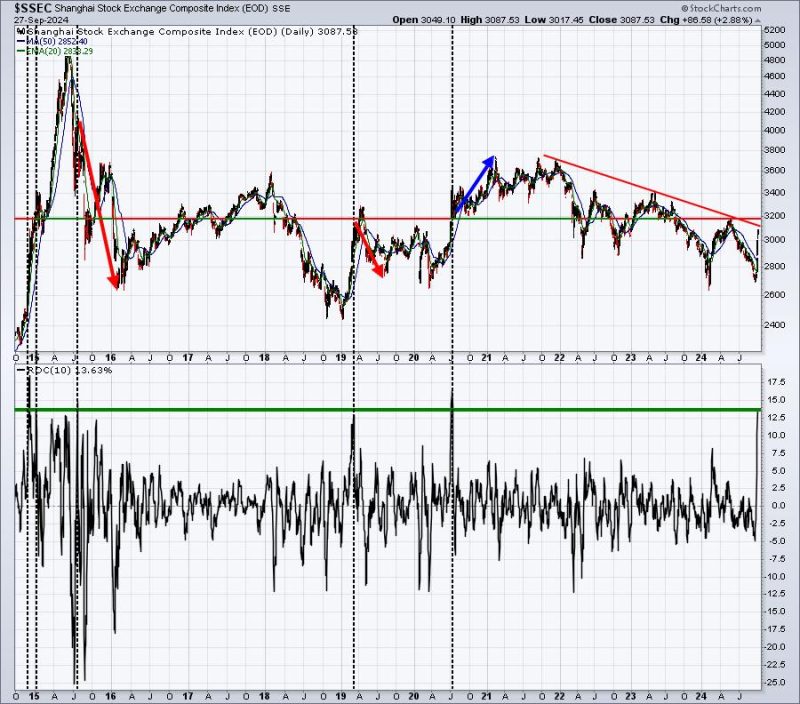The recent positive performance of the Chinese market has raised questions about whether this strength can be maintained in the coming weeks. Various factors have contributed to this improved performance, including strong economic data, increased foreign investment, and government policies aimed at supporting the economy. However, challenges such as regulatory concerns, geopolitical tensions, and the impact of the ongoing pandemic continue to pose risks to market stability.
One of the key drivers of the recent market strength in China has been the release of positive economic data. In the second quarter of 2021, China’s GDP grew by 7.9%, exceeding expectations and indicating a strong recovery from the disruptions caused by the pandemic. This growth was supported by robust industrial production, strong retail sales, and increased investment in infrastructure projects. The release of this data has bolstered investor confidence in the Chinese economy and contributed to the recent uptrend in the stock market.
Foreign investment has also played a significant role in driving the recent strength of the Chinese market. Inflows of foreign capital have increased in recent months as investors seek exposure to China’s growing economy and attractive valuations. The Chinese government has taken steps to liberalize its financial markets, making it easier for foreign investors to access Chinese stocks and bonds. This increased foreign investment has provided a boost to asset prices and added liquidity to the market, supporting the recent rally.
Government policies have also been instrumental in supporting the Chinese economy and boosting market sentiment. The Chinese government has implemented a range of measures to stimulate economic growth, including tax cuts, infrastructure spending, and monetary easing. These policies have helped to stabilize the economy and support businesses and consumers through the pandemic. Additionally, the government has taken steps to ease regulatory burdens on certain industries, such as technology and education, which has helped to alleviate concerns among investors and contributed to the recent market strength.
Despite these positive developments, there are several challenges that could impact the sustainability of the recent market strength in China. Regulatory concerns continue to weigh on investor sentiment, particularly in sectors such as technology and education. The Chinese government has introduced a series of regulatory measures aimed at controlling the influence of tech giants and promoting fair competition in the market. These regulatory actions have led to increased uncertainty and volatility in Chinese stocks, posing a risk to the market’s stability.
Geopolitical tensions also present a threat to the Chinese market’s continued strength. The ongoing trade disputes between China and the US, as well as tensions with other countries in the region, could impact investor confidence and disrupt the flow of foreign investment into China. Additionally, the risks posed by the COVID-19 pandemic remain significant, with the emergence of new variants and the potential for renewed disruptions to economic activity.
In conclusion, while the recent strength of the Chinese market has been supported by positive economic data, increased foreign investment, and government policies, there are challenges that could hinder its sustainability in the coming weeks. Regulatory concerns, geopolitical tensions, and the ongoing pandemic all pose risks to market stability and could lead to increased volatility in Chinese stocks. Investors should remain vigilant and closely monitor these factors to assess the outlook for the Chinese market in the near term.
